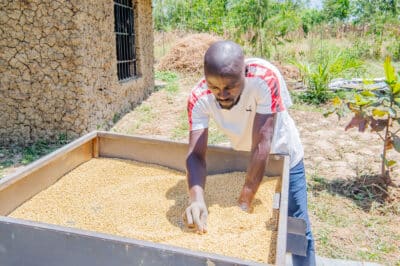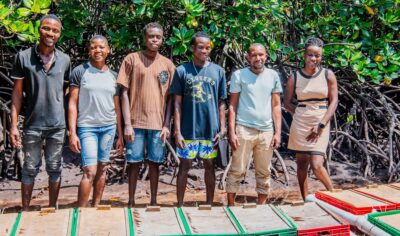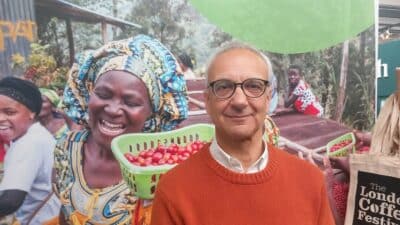Expert view
11 September 2013
"Before we were just handles of our husbands"
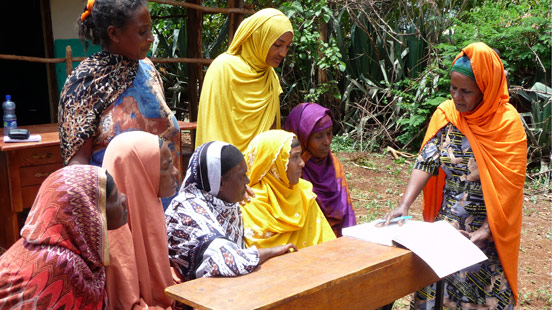
Farm Africa’s Senior Communications Officer, Matt Whitticase, was travelling all last week In Ethiopia’s beautiful Bale Mountain Region, visiting Farm Africa’s Forestry Project there. He was in Ethiopia with Ben Thurman, one of twelve aspiring journalists shortlisted by The Guardian for the final of its International Development Journalism Awards. Ben will be reporting on Farm Africa’s work in Bale in a special supplement to be published by The Guardian later this year.
In this second postcard from Bale, Matt describes meeting a group of women whose lives have changed dramatically since they joined a savings and loans group set up by Farm Africa.
10 September 2013
“Before we were just handles of our husbands”
These were the bleak words used by Gadise Tademse to describe to me life for herself and her fellow women villagers just a few years ago.
But then a look of intense pride spreads across her face as she tells us how their lives have changed dramatically in just a few short years:
“But now we earn our own money and we get to decide what to do with it.”
It’s a remarkable transformation that I’m hearing about. It all started when Farm Africa approached Gadise and the other members of the Barbise Farmers’ Co-operative to see if they would be prepared to join an ambitious project in the Bale forests. The project’s aim? Nothing less than to turn back the rising tide of deforestation in the forests of the Bale Eco-Region of Ethiopia.
The villagers agreed to abandon their traditional livelihoods of felling and burning trees for timber and charcoal, and instead to receive training and funding for more sustainable activities like wild coffee farming and honey production.
And they also agreed to establish a women’s savings and credit group. The groups have literally transformed the lives of hundreds of women in Bale, enabling them to access cheap credit so they can set up their own small-scale businesses for the very first time.
Farm Africa helped the women set up the group in 2008, with each woman initially putting five Ethiopian birr into the communal fund every month. Once it became clear that the women were committed to saving this way, Farm Africa gave the group a grant of 20,000 Birr, followed by a further grant of 70,000 birr. Members then started to apply for loans of 1,000 birr each to turn their ideas into real living businesses.
If it all sounds a bit like something out of Dragon’s Den, that’s because it is. We watch as women applying for loans confidently explain to the group what they will use the money for and how it will set up a business capable of delivering an income – with enough money left over to repay both the loan and 10 birr ‘interest’ after just six months. Businesses include buying honey and coffee beans from farmers in the forest and selling them on to shops in the local town for a profit. Loans and repayments are carefully recorded in front of the other group members and we are astonished to hear how only one loan has not been repaid on time since the scheme began.
%module-embedded-32-WIDTH%
Video: Farm Africa’s Communications Officer in Ethiopia – Samrawit Sintayehu – explains how a Women’s Savings Group meeting works.
One woman whose life has changed forever thanks to the savings group is Memuna Kula, Chairwoman of the Adiburu Women’s Co-operative. Memuna has established a shop in the local town to sell honey and coffee bought from forest farmers. She beams with newfound confidence as she explains how she bought coffee with her 1000 birr loan, only to sell it on for a whopping 3,000 birr after the market price jumped.
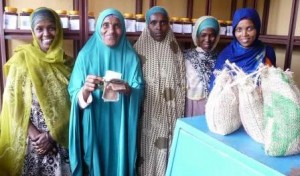
“I’m counting the money made from the shop” she says, gleefully holding up to me a fistful of birr in case I was in any doubt of her success. “It’s good that Farm Africa are paying attention to us women. We are much more effective in business than the men and we spend our income on our families and children.”
When I ask her about the attitude of the local men to the women’s new businesses she roars with laughter. “When we set up our group the men had a bad attitude towards what we were doing. But now they see how successful we are and want to join us!”
The women’s success in Bale is hardly surprising. In fact it’s typical of the results achieved by women anywhere when they are given opportunities, training and greater control of their lives. Hardly surprising then that one of the development community’s most quoted statistics is that if women had access to the same resources as men, agricultural productivity would leap by up to 30%.
And as I sit in the shade of a juniper tree watching these women energetically discussing their business ideas, it’s easy to see why.
Read Matt’s first postcard from Bale.
